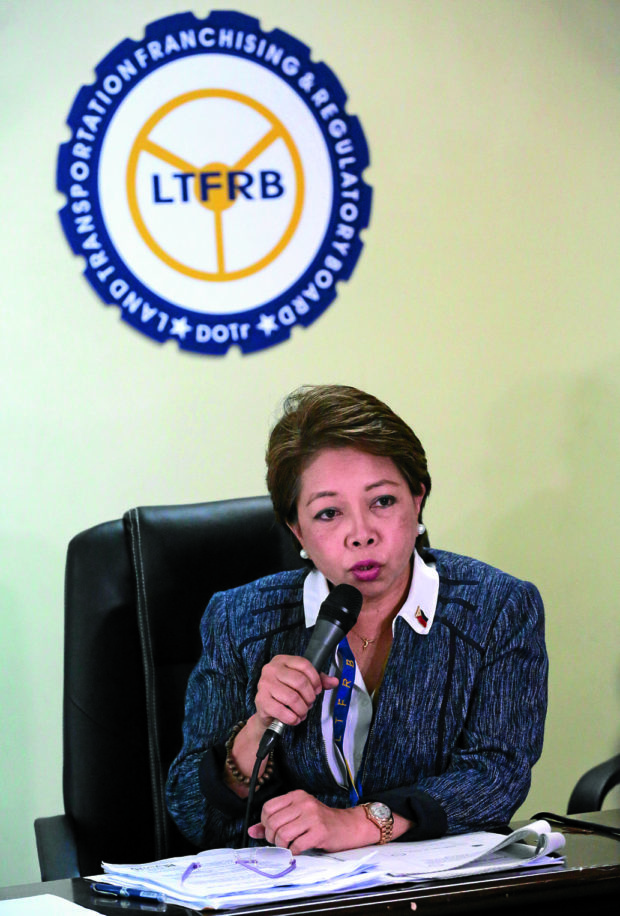LTFRB shows ‘proof’ of Uber violation

LTFRB board member Aileen Lizada.
INQUIRER FILE PHOTO / GRIG C. MONTEGRANDE
The accreditation of transport network company (TNC) Uber for another year may face rough sailing after the Land Transportation Franchising and Regulatory Board (LTFRB) said it was able to activate three cars into the Uber ride-sharing app days after the agency ordered TNCs to stop accepting new drivers.
During a hearing on Wednesday on Uber’s alleged violation of the agency’s July 26 order, LTFRB board member Aileen Lizada told the company’s representatives that the board’s personnel were able to register and include three cars on the Uber platform within an hour using a mobile phone.
On July 26, the LTFRB told TNCs Grab and Uber that “no further acceptance of additional accreditation of TNVS (transport network vehicles services) and/or activation of their accounts into (your) respective systems shall be allowed, effective immediately.”
On Tuesday, the board ordered Uber officials to appear in the hearing on the alleged violation. Later that day, the company issued a statement explaining that “applications for vehicles are being
accepted but not processed.”
At Wednesday’s proceedings, Uber legal counsel Joseph Castillo maintained that the company had made it “clear in the communication packages” given to new drivers that “activations will not happen even if we accepted” their applications.
But Lizada showed Castillo how the LTFRB itself was able to obtain an account through the web portal used by Uber drivers. She said the agency over the weekend was able to add a car into the newly created account at 2:20 p.m. and have it activated at 2:58 p.m.
“What I find difficult to comprehend is that your partners can add vehicles into their accounts inside the confines of their room,” Lizada said. “I wonder how many operators are now putting vehicles in their respective accounts because this can be another way [to] circumvent [our orders].”
Castillo said he would have to go back to Uber to determine if the “active” status of a car in the account meant that the drivers could already use the vehicle.
LTFRB chair Martin Delgra III acknowledged that while TNCs are “ahead in terms of technology,” they still need to comply with government regulations.
“[The] acceptance for accreditation [has] to stop precisely because we’re trying to address false expectations of prospective TNVS to get themselves accredited, or worse activated or get a booking,” he said.
Lizada stressed that the board’s two meetings with Uber and Grab last month were done “in good faith to find an equilibrium” in addressing concerns of the ride-sharing industry. “We hope Uber will be patient enough to wait and be compliant. That’s all that we’re asking,” she said.
The board has given Uber five days to submit a written explanation why its accreditation, set to expire this month, should not be cancelled in view of the alleged violation.